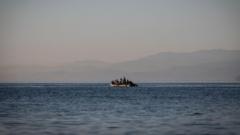At least 69 individuals, including 25 from Mali, perished when a makeshift boat sank while attempting to reach Spain from West Africa. The Mali government confirmed that this incident occurred last week, but details were only revealed recently. Of the approximately 80 passengers on board, only 11 survived, with nine of those being Malians. The Malian Ministry of Foreign Affairs announced the formation of a crisis unit to manage the aftermath and support survivors.
For years, Mali has been plagued by jihadist violence and instability, compounded by a political situation marred by military coups in 2020 and 2021. Although a promise to return to civilian governance by March 2024 was made, the realities on the ground remain dire. Unemployment and the adverse effects of climate change continue to displace populations, prompting many to seek better opportunities in Europe, often through perilous means.
This particular route across the Mediterranean has earned a grim reputation as one of the deadliest for migrants. According to Caminando Fronteras, a Spanish rights organization, over 10,000 individuals have lost their lives trying to reach Spain by boat this year alone. This alarming statistic translates to roughly 30 deaths per day, spotlighting the urgent need for intervention and support for those fleeing circumstances desperate enough to risk such treacherous journeys.
With Morocco just a short distance from Spain, the plight of many sub-Saharan migrants fleeing their homeland remains at the forefront of the global migrant crisis, raising complex questions about security, humanitarianism, and migration policies across Europe.



















